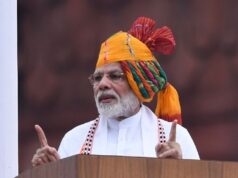India’s former environment minister has expressed his concern by Australia’s decision to approve the firm’s coal mine in the Galilee Basin, and has questioned the miner’s environmental history.
Jairam Ramesh has told the ABC the mine will threaten the survival of the Great Barrier Reef.
“There’s no reason for me to believe that Adani would be a responsible environmental player globally,” he said.
Mr Ramesh told the program the mine will threaten the survival of the Great Barrier Reef, and Adani’s record in environmental management in India “leaves a lot to be desired”.
“And if it leaves a lot to be desired domestically, there’s no reason for me to believe that Adani would be a responsible environmental player globally,” he said.
Queensland Premier Annastacia Palaszczuk on Monday reiterated that strict environmental controls were in place.
Meanwhile, the Institute for Energy Economics and Financial Analysis has released new analysis detailing the risks associated with the refinancing of the Abbot Point Coal Terminal.
The port, which is leased to Adani by the Australian federal government, is due for a $1.5 billion debt refinancing next year and a cumulative debt refinancing of $2.11 billion by 2020.
“Securing this refinancing is going to be a real challenge … because the port value has been tied to the success of the Carmichael coal mine proposal which is itself yet to secure funding,” said Tim Buckley, IEEFA’s director of energy finance studies, Australasia.
Mr Buckley said a potential $1.5 billion loss on any decision to walk away from the proposal explained why the Adani Group remained focused on securing Australian taxpayer subsidies and royalty holidays.
To the extent able to be analysed from ASIC records, Adani’s entire mine, rail and port operation in Australia looks to be 100 per cent debt financed and shareholders funds now tally an unprecedented, negative $458 million combined,” he said.
“The value at stake for the Adani Group’s Carmichael mine proposal is far bigger than previously understood.”
Adani said it operated within the law and defended its environmental record, citing cases before India’s Supreme Court.
“We cannot be held to either ransom or blackmail by media organisations that indulge into sensationalism without any basis and contrary to facts,” a spokesman said.
During an interview with Four Corners, Mr Ramesh said the federal and Queensland governments had not properly looked at the Adani Group’s environmental and financial conduct in India before approving the mine in the Galilee Basin.
“I’m very, very surprised that the Australian Government, for whatever reason, has seen it fit to all along hand-hold Mr Adani; he is not one of the shining stars of environmental stewardship,” he said.
That Australia would consider giving concessional loans and other financial breaks to Adani was almost beyond belief given the consequences for climate change, he said.
“You’re giving a tax break to a project that is actually going to have adverse environmental consequences, which will have multiplying effects on weather patterns in the region, across the world. I find it bizarre,” he said.
“The Great Barrier Reef happens to be in Australia, but it’s a common heritage of mankind, it belongs to the world.”
A spokesman for federal Environment and Energy Minister Josh Frydenberg said Adani’s new mine would create thousands of jobs.





